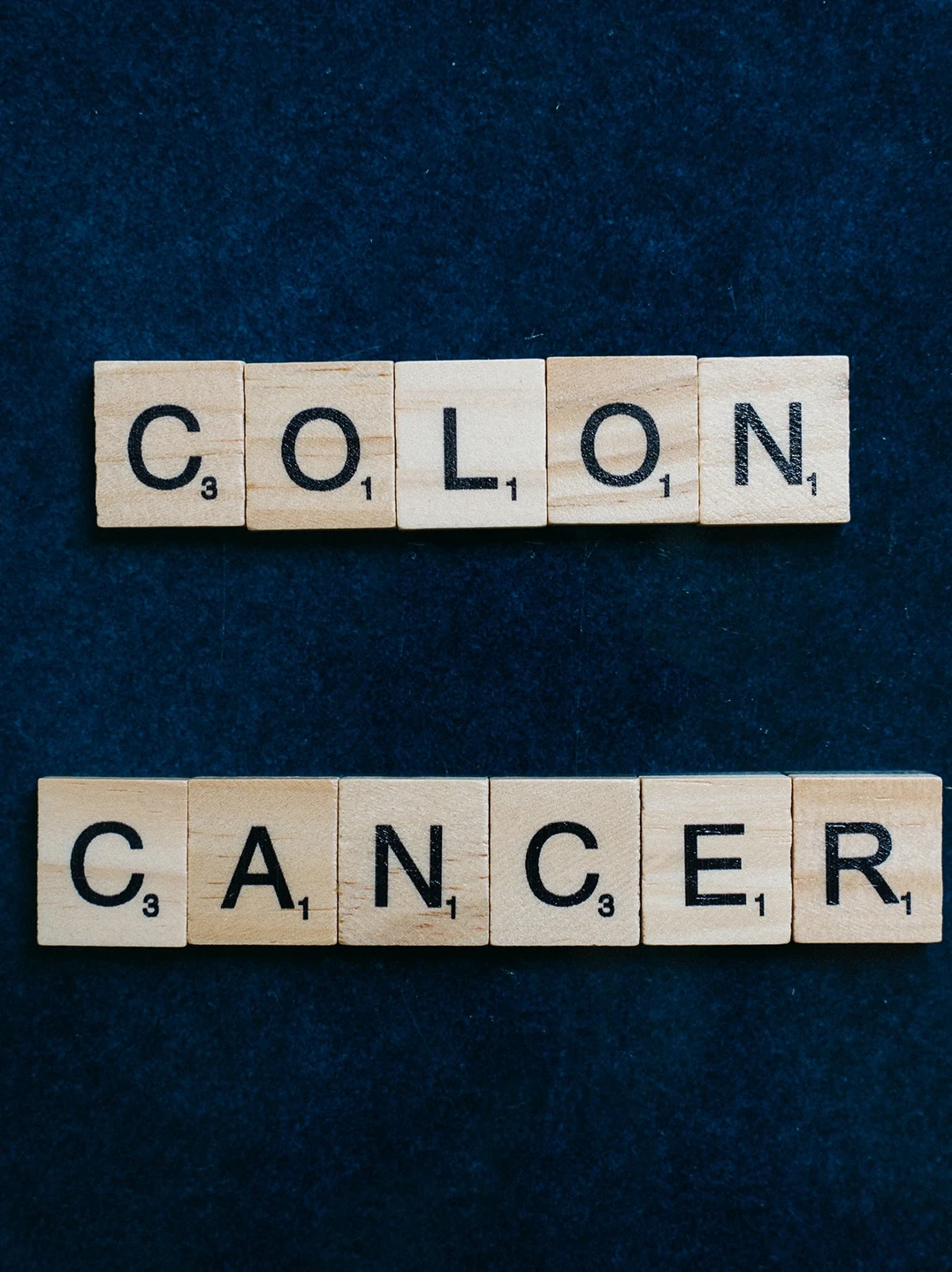What is the best choice for colon cancer screening and when should it be done?
Colorectal cancer (CRC) is the second biggest cause of cancer-related deaths in the United States, and the incidence rate is increasing, particularly among adults aged 20 to 49. Unfortunately, only about 30% of eligible adults in the United States have been examined for CRC.
Screening tests that look for cancer or precancerous growths called colon polyps can help avoid colon cancer.
When is the best time to begin screening?
For average-risk people, the United States Preventative Services Task Force recommends commencing CRC screening at the age of 45. These recommendations are based on the most recent information on when the risk of colon cancer begins to rise.
Patients at average risk have no personal or family history of colon cancer, nor do they have a genetic disease that raises their risk of getting CRC. As a result, patients should discuss their family history with their primary care physician, including all cancer diagnoses in blood relatives, so that the optimal time to start colon cancer screening may be determined.
Which type of screening should you go with?
The most crucial aspect of colon cancer screening is having a test performed. Colonoscopy or FIT testing are the most popular procedures to screen for colon cancer in most patients. If you can't or don't want to have a colonoscopy or FIT testing, there are other choices to think about. Finally, this is a personal and essential decision that a patient should address with their healthcare professional so that the appropriate test can be performed at the appropriate time.
It is recommended that high-risk people undergo screening before the age of 45. A primary care physician can help identify when and how a patient should be checked for CRC if they are concerned about their risk level. Patients with a history of CRC or polyps, a first-degree relative with CRC or advanced polyps (those that would have progressed to CRC if not removed), a family history of certain genetic syndromes, or a history of inflammatory bowel disease (such as Crohn's disease or ulcerative colitis) are all high-risk factors.
What screening options are available for CRC?
Colonoscopy: Colonoscopy is the gold standard of screening tests, detecting about 95% of CRC cases. It's also the only way for a gastroenterologist to discover and remove potentially malignant colon polyps at the same time. Although colonoscopies are generally low-risk procedures, they can include a minor risk of bleeding and perforation, which increases with age.
Prior to the operation, patients should drink a colonoscopy prep, which washes stool out of the colon so that it may be adequately examined during the procedure. The gastroenterologist's office provides the prescription instructions for the prep.
To ensure that the patient is as comfortable as possible, the procedure is usually performed under anaesthesia. It's vital to note that patients aren't put under general anaesthesia, but they usually feel tired and relaxed throughout the procedure.
A gastroenterologist will put a colonoscopy, a flexible tube with a camera at the end, into the rectum during a colonoscopy. The colon is then thoroughly examined. If no polyps are found and the colon has been adequately prepared (cleanout), a repeat colonoscopy is recommended in 10 years. This period will be shorter if polyps are discovered, or if the patient's risk level or symptoms change.

Regarding the most prevalent malignancies in males, what's new?
Medical research continues to aim for more potent cancer medicines. New approaches that can treat cancer sooner and improve results are still being discovered in labs and research trials. What then has garnered the greatest attention in the fields of colon, lung, and prostate cancer—the three malignancies that affect men most frequently?
Cancer of the prostate
The use of hormone treatments to treat cancer in both advanced and early stages has attracted increasing attention. A few active trials are noteworthy. For example, patients at high risk of cancer relapse are receiving rigorous hormone treatment both before and after prostate surgery as part of the PROTEUS experiment.
In high-risk patients who have already received radiation and hormonal therapy but still have detectable PSA levels, an analogous approach would be to increase the dosage of hormonal medication.
Following prostate surgery, some individuals with high-risk prostate cancer are also receiving hormonal therapy. Using genetic testing of prostate tissue to identify men who have a high risk of cancer recurrence, ERADICATE research is investigating the potential benefits of aggressive hormone therapy for these men following a prostatectomy. (The outcomes of the ERADICATE study and the PROTEUS experiment are anticipated in a few years.)
Treatment for prostate cancer that has already spread has also advanced recently. "In these cases, the common treatment approach is radiation to the prostate and intensive hormonal treatments," the statement reads.

RSV, short for respiratory syncytial virus, is a common virus that typically only causes cold symptoms in most people. However, for infants and young children with certain health conditions, RSV can pose serious risks. Luckily, a revolutionary immune-boosting therapy has emerged as a potential solution.
What kind of complications can RSV cause?
RSV is the primary cause of bronchiolitis and pneumonia in children under one year old. Particularly for children with heart or lung diseases, it can lead to life-threatening breathing problems.
What treatment options are available for RSV?
Currently, there are no effective medications for treating RSV. However, a preventive medication called palivizumab (Synagis) can be administered monthly during the RSV season to high-risk infants. It's worth noting that while RSV can occur year-round, many cases are reported between late fall and early spring. Unfortunately, strict criteria set by insurance companies and the need for monthly doses have limited its accessibility.
1 comment
The FDA approves the first medication for treating hot flashes.
Women who are suffering from the uncomfortable hot flashes associated with menopause may find relief with a new drug. The FDA authorized fezolinetant (Veozah) in May 2023. It's the first medication made expressly to lessen the frequency and intensity of hot flashes and sweats that accompany a woman's declining estrogen levels. Fezolintant is a non hormonal medication that modifies the brain's regulation of body temperature, in contrast to hormone replacement therapy, which is the primary treatment for hot flashes and may increase the risk of blood clots or breast cancer. The medication needs to be taken consistently, and it needs to be taken with regular blood tests to monitor for any potential side effects, such as liver damage. Back discomfort, diarrhea, sleeplessness, and abdominal pain are possible additional side effects. Aside from hormone-based pharmaceuticals, other non hormonal treatments for hot flashes include antidepressants, blood pressure treatments, and medications for nerve pain.
Depositphotos
Increasing opioid-related deaths in Black communities are associated with health disparities.
From 1999 to 2019, the opioid crisis caused half a million deaths. In contrast, the COVID-19 pandemic has resulted in a tremendous increase, with in more people dying of opioid overdoses last year than ever before. However, the nature of the crisis has altered.
Traditionally, the opioid epidemic has been viewed as predominantly affecting white Americans in rural regions. This was partly purposeful, since pharmaceutical corporations picked these places to avoid the glare of law enforcement agents. Black people were far less likely to be provided opioids for pain management, even when medically needed in emergency situations, which contributed to the greater likelihood of opioid addiction among white Americans. However, recent data from the Centers for Disease Control and Prevention (CDC) indicates that the rapid infiltration of opioids into black communities is accelerating the epidemic's growth.
According to new research, more black Americans are dying from drug overdoses.
The opioid crisis is gradually ensnaring black people, according to a report just released by the CDC. Opioid overdoses increased by 30% in 2020 compared to 2019, resulting in 91,799 deaths. However, the growth was not observed universally. The death rate among African-Americans climbed by 44%, the largest increase of all racial and ethnic groupings, and double that of white Americans.
In 2020, for the first time in the history of the opioid epidemic, the death rate from opioid overdoses was higher among African-Americans than among white Americans, largely due to the increase in illicit fentanyl. |
Oh dear, we made it to the year 2024. What a privilege. I am happy and thankful to God for another year. This year, I ask God for wealth and for His will in my life to be done. I ask for help using my blog to positively reach others and also share God's words. HAPPY NEW YEAR!
Here are beautiful free screensavers for your phone and a desktop background for your 2024 wallpaper. Which did you download?



The days have been slow, and I am loving it. I am ready for the new year, and I am really positive about it. The approach to preparing for the new year can vary, but here are 10 tips to guide you through the process:
1. Reflect on 2023:
Take time out to go through your achievements, lessons learned, and areas in which you need growth.
2. Set goals that are reasonable and clear:
Define your goals; be specific, measurable, and achievable for 2024. One way to fulfil your goals is to break them into smaller tasks to better manage them.
3. Create a Plan:
Develop a roadmap that will help you achieve your goals. Write down actionable steps and deadlines to keep yourself accountable in the process.
4. Make self-care an important priority:
Ensure your well-being by putting self-care into consideration. Exercise, mindfulness practices, and maintaining a healthy work-life balance. Remember, your health comes before your work.
5. Celebrate Your Achievements:
Many people just work and work without taking a moment to acknowledge and celebrate their wins. It doesn't matter; both small and big accomplishments should be celebrated.

While responding to comments on my previous Christmas post, I thought, "Why not share photos of my afro wig?" Interestingly, my natural hair resembles this afro wig. I found the wig at an affordable price with positive reviews, so I decided to purchase it and try it out. Surprisingly, I'm impressed with its nice and natural appearance and might order the brown color. The fit is comfortable, and there's no unpleasant odor. The packaging is well done. It's important to note that proper care is essential for its longevity. Overall, I genuinely like this afro wig. It's soft and light, and the elastic isn't too tight, providing comfort. I dislike overly tight wigs that cause headaches. For this wig, it's full, fluffy, has good texture, and looks good on me, just like in the photos.
Make the comparison yourself; there might be a slight difference, but it's close. Let me know what you think. Does my natural hair look like this wig?
The wig I ordered My natural hair
How do I wash a synthetic afro wig?
Firstly, add shampoo to cold water and pour a cup of warm water into the cold water. Shake the water with your hands to create foam. Place the wig inside and shake it. Submerge it in the water and let it sit for about 10 minutes, then rinse and air dry.
Next, add water and a small amount of leave-in conditioner to the water. Spray this mixture all over the hair. Use your fingers to fluff it out, trim if needed, and you are ready to go.
Did you take a break from work to enjoy Boxing Day, or do you have a national holiday in your country? For me, I stayed home all day. Last night was a little difficult for me. I talked about having a cough, and it becomes even more persistent at night. I was talking to my niece and kept coughing for a long time, even after taking my drugs. My throat began to hurt a little, and when I woke up this morning, I was in so much pain, but I managed to stand up, prepare breakfast, and take my drugs, and now I feel much better. I drank lots of water, and I cannot overemphasize the importance of drinking water; it helps your overall health.
I needed some supplies and had to go outside, and all the stores were closed apart from one, which was partly cleared up. I walked back home, had a hot bath, had dinner, and was listening to Christian Christmas music and praying. So calming.
I believe that this Christmas season, which is dedicated to the birth of Jesus Christ, comes with cheers, and God is blessing us all.
I wish you a happy Boxing Day. Tell me how you spent your day.

Today is Christmas Day, and I am particularly thankful. We always looked forward to Christmas as kids because my parents would buy new clothes and shoes for my siblings, and my mother's cooking was always excellent. Each time I talk about my mom's cooking, it's not just because she's my mom; she's a skilled cook. During family occasions, everyone wants her to lead or supervise the cooking. My mom is blessed with the gift of cooking.
She would prepare delicious meals, and we would enjoy them as a family. We'd walk around the neighborhood to showcase our Christmas clothes and sometimes receive money gifts. Just like people celebrate Halloween, that's how we celebrate Christmas—going around and collecting gifts. It's funny to think about it now, but I love those memories. People would visit each other's houses and eat together. My mom usually prepares takeaway packs for anyone who visits us. I loved Christmas back then, but as I grew up and moved abroad, it wasn't the same. There were days I would just sleep all day during Christmas, like today, when I was at home on the couch feeling weak from the flu and cough.

Subscribe to:
Posts (Atom)
Quote of the day
Please remember to bring it to the Lord in prayer.
Melody Jacob












